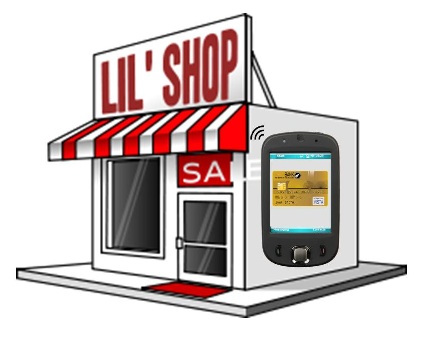If London Assembly member Tony Arbour has his way, mobile devices will be the key tool for tourists.
Conservative London Assembly member and mayoral hopeful, Tony Arbour, believes that there is a great deal to gain from the use of geolocation, QR codes and NFC technology when it comes to expanding the tourism in the city beyond the central area.
Many tourists miss out on some of the best features of the city because they never hear about them.
While Londoners would be able to tell you about the Horniman Museum, the Royal Air Force Museum, Crystal Palace Dinosaurs, and Richmond Park, many tourists are still visiting the core points of interest such as Buckingham Palace and the Tower of London. Essentially, tourists are missing out on some fantastic attractions and those attractions are missing out on the tourists. Arbour feels that if iBeacons using geolocation technology are combined with the use of QR codes, this problem can be rapidly resolved.
The key would be to use a Visit London mobile app which provides relevant information through geolocation tech.
 In order to use it, visitors would simply need to load the app. Then, whenever they travel near iBeacons throughout the city, they would receive information that is relevant to where they are so that they will be more aware of the types of attractions and points of interest that they could be visiting but that they might otherwise have missed.
In order to use it, visitors would simply need to load the app. Then, whenever they travel near iBeacons throughout the city, they would receive information that is relevant to where they are so that they will be more aware of the types of attractions and points of interest that they could be visiting but that they might otherwise have missed.
This will help them to see more than just inner London and to experience a great deal more of the city. It will also help the economic benefits of that tourism to spread outward toward other boroughs of the city.
Arbour has created a report that he has entitled “Unknown London”. He is hoping that Visit London, the tourist agency of the city, will change its current priorities and will use geolocation, QR codes, and other technologies to spread the benefits of tourism to new regions of London. As an example of the way it would work, he stated that “…a tour of London food markets could guide the tourist, via a series of codes or beacons, from one market to another, giving the history of each market, providing up to date vouchers and local dining and of course providing advice transport advice to the next stop on the route.”
Small merchants have yet to show enthusiasm for mobile payments
Mobile commerce is having difficulty gaining traction among small businesses in the United States. According to the U.S. Census Bureau, these companies account for more than 90% of the businesses in the country, but they have yet to show significant support for mobile payments. Large retailers and banks, however, have become quite enthusiastic about mobile commerce, offering consumers services that allow them to manage their money and shop directly from the smartphones and tablets.
NFC technology proves somewhat unattractive for small businesses
One of the reasons that small businesses may not be supporting mobile payments is because NFC technology comprises much of the mobile commerce infrastructure. NFC technology allows digital information to be transmitted over short distances and it has become a powerful tool for the mobile payments space. Most prominent payment services, such as Apple Pay, make use of this technology in order to facilitate transactions, but this requires that physical merchants have an NFC-enabled terminal that is able to interact with this technology.
EMV standards may drive the adoption of mobile commerce among retailers
 For small businesses, adoption of NFC technology may be too costly, which has stunted the growth of mobile commerce among some merchants. An alternative, however, is new Europay, MasterCard, and Visa (EMV) standards, which retailers are required to embrace by October 1. These standards allow all retailers to adopt new payment terminals that support EMV cards. This will allow retailers to also embrace mobile payments, because EMV-enabled cards will be associated with the payment services being used by consumers.
For small businesses, adoption of NFC technology may be too costly, which has stunted the growth of mobile commerce among some merchants. An alternative, however, is new Europay, MasterCard, and Visa (EMV) standards, which retailers are required to embrace by October 1. These standards allow all retailers to adopt new payment terminals that support EMV cards. This will allow retailers to also embrace mobile payments, because EMV-enabled cards will be associated with the payment services being used by consumers.
Small retailers have little interest in EMV standards
While small retailers will also have to adopt EMV-enabled terminals, many have yet to outline plans to do so, partly due to high costs. If retailers do not embrace the new EMV standards, they will be held liable for any fraudulent purchases that are made through their establishments. Once small retailers begin feeling the consequences of these fraudulent purchases, however, they are likely to adopt the standards and begin acquiring EMV-enabled terminals.
 In order to use it, visitors would simply need to load the app. Then, whenever they travel near iBeacons throughout the city, they would receive information that is relevant to where they are so that they will be more aware of the types of attractions and points of interest that they could be visiting but that they might otherwise have missed.
In order to use it, visitors would simply need to load the app. Then, whenever they travel near iBeacons throughout the city, they would receive information that is relevant to where they are so that they will be more aware of the types of attractions and points of interest that they could be visiting but that they might otherwise have missed.
 For small businesses, adoption of NFC technology may be too costly, which has stunted the growth of
For small businesses, adoption of NFC technology may be too costly, which has stunted the growth of 